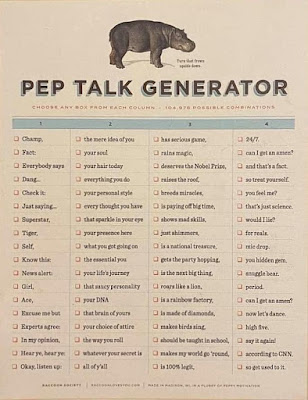Sunday, January 23, 2022
jorge luis borges | celestial empire of benevolent knowledge
Friday, January 21, 2022
Wednesday, January 19, 2022
danny kaye, enthusiast
In his later years, Danny Kaye entertained at home as chef. He specialized in Chinese and Italian cooking. He had a custom-made Chinese restaurant installed at the rear of his house by its alley, then had a kitchen and dining area built around it. The stove that Kaye used for his Chinese dishes was fitted with metal rings for the burners to allow the heat to be highly concentrated, and a trough with circulating ice water cooled the area to keep the intense heat tolerable for those who were cooking. He learned "at Johnny Kan's restaurant in San Francisco and with Cecilia Chang at her Mandarin restaurants in San Francisco and Los Angeles." He taught Chinese cooking classes at a San Francisco Chinese restaurant in the 1970s. Kaye approached kitchen work with enthusiasm, making sausages and other foods needed for his cuisine. His work as a chef earned him the "Les Meilleurs Ouvriers de France" culinary award. Kaye is the only nonprofessional chef to have received this honor.
Monday, January 17, 2022
found poem in progress | assembled from the pages of the new yorker, 2021
In the house, nothing held still: objects danced on the mantel, the ideograms on our hanging scroll of Chinese calligraphy flew around like butterflies. At the beginning, many of these transformations had given her pleasure. More and more, however, they annoyed and alarmed her. Three women were hanging in her closet and refused to leave. The Flowery Man roamed the house.
“We certainly can’t stay any longer in this person’s house, in a place where we don’t even speak the language.”
Thursday, January 13, 2022
Sunday, January 09, 2022
tom hennen | sheep in the winter night
Wednesday, January 05, 2022
Sunday, January 02, 2022
jeffrey overstreet | critical thinking & the film critic
This will make a great new example for Week One of my class on critical thinking. We take a film and then we spend about 20 minutes scrolling through "Audience Reviews." I ask the students to pay close attention to what each "reviewer" claims about the movie, and then to make a list of the useful *evidence* that each "reviewer" provides to back up their claims. They quickly start realizing the problem: Most "Audience Reviews" are not reviews at all — they're reactions. "I loved it." "It was first-rate." "It was one of the best movies I've ever seen." Evidence is slight or non-existent.
Then we start looking at reviews published in actual journals where writers are *working,* and where editors are often involved. Professional reviews, they quickly realize, demonstrate some level of expertise and are designed to represent critical thinking. They make claims *and* they have evidence — some drawn directly from the film, some drawing from the context of the film's release, some making comparisons and connections with other films, some going into detail about aspects of the film's making. We find that some critics are better at this than others. We find that some critics with whom we disagree are actually very impressive in the substance of their arguments, and we might even be persuaded to change our minds. We find that other critics are better at making noise rather than making strong arguments. But altogether, we realize that the critics, rather than just being snobs, are, 9 out of 10 times or better, actually and obviously *in love with movies* — so much so that they invest in thinking carefully and building persuasive arguments.
Their writing starts changing quickly after that. They realize that adding exclamation points to their words does not make their words more persuasive. They realize that piling up claims about how much they loved it doesn't really do anything to advance their claim.
They also begin to realize that, while they have assumed that film critics are "snobs," they themselves actually really enjoy taking part in detailed, critical, complex conversations about other subjects that they're experts in. There will usually be a student in the room who loves soccer, and who can throw around soccer terminology, and who has a favorite player. I ask the class: "Is he a snob? Or does he clearly love soccer?" Then I ask, "If you wanted somebody to help you understand soccer, would you ask somebody who says 'SOCCER IS THE BEST!!!', or would you ask somebody who can describe for you the strengths and weaknesses of every team competing this year?
By the end of the class, they've become moviegoers who are far less likely to see the "Audience Score" as a fair representation of the quality of the movie. They'll see it instead as a record of knee-jerk emotional responses from people who probably won't have substantive conversations about the film. They'll realize that looking at the Critics' Score is more like looking at a Consumer Reports assessment: This represents a rough measure of how impressed were the moviegoers who see 300–400 movies a year from all over the world, who love movies so much they have studied them for decades, who know the technical terminology in order to think and communicate with specificity and eloquence.
It's interesting, then, to see what happens when we turn the corner from this analysis of critical thinking on film to critical thinking on politics, or social issues, or faith.
Now... if this 'Comment' is too long for you, and thus looks 'snobbish,' well, you have plenty of one-line Comments here to choose from that will take less of your time and attention. I'm sure they're compelling.












